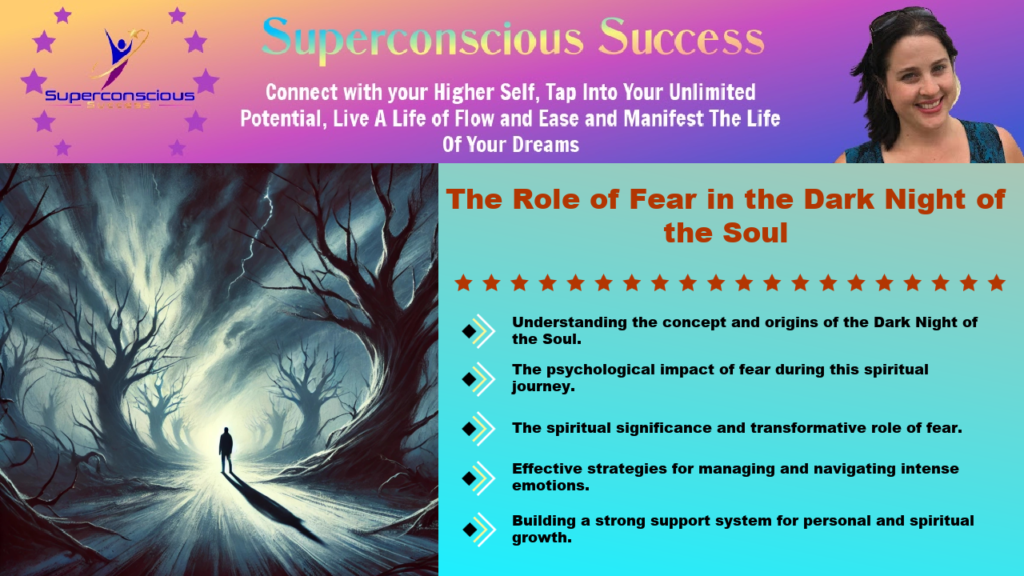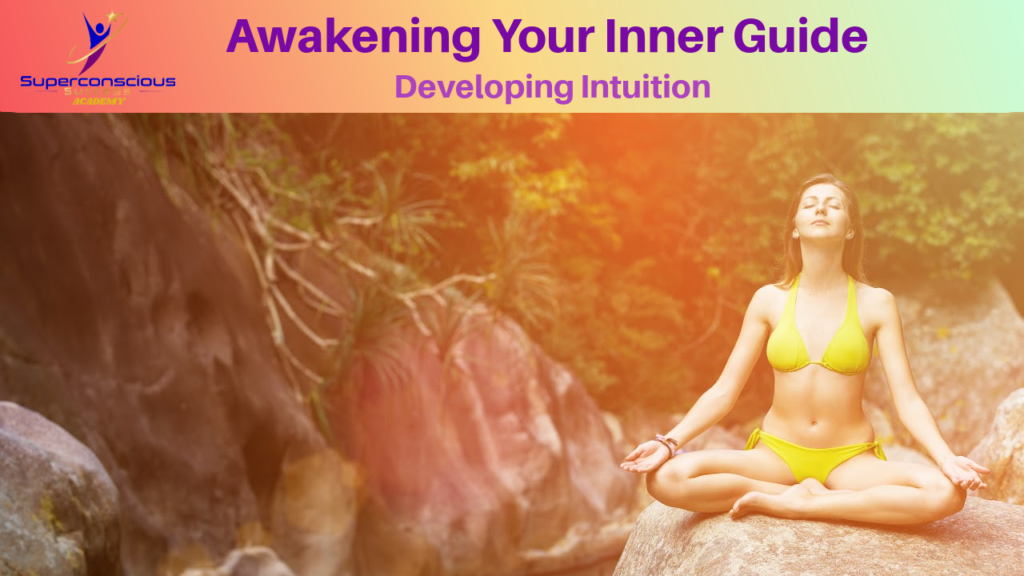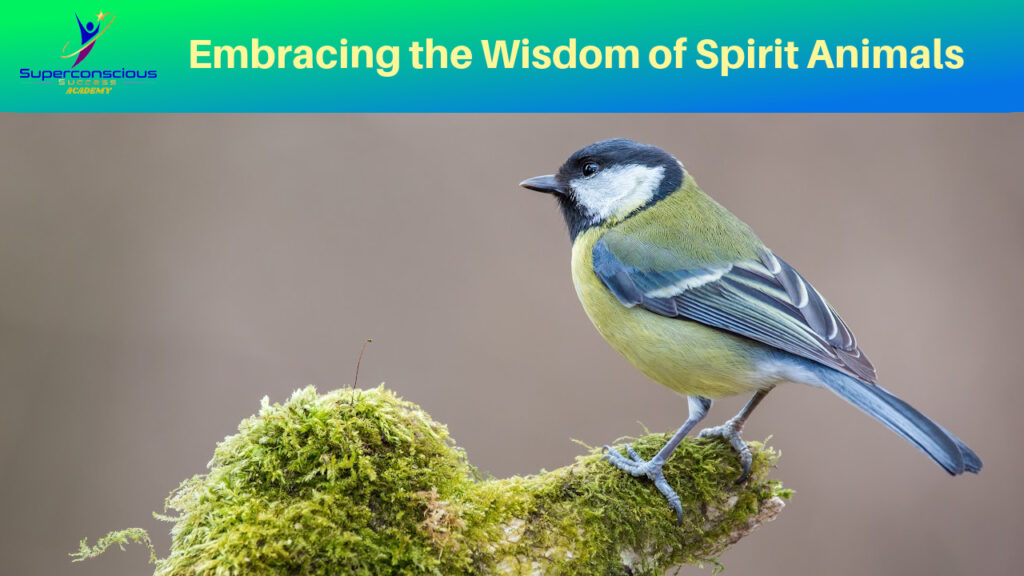
Welcome to this in-depth exploration of the “Dark Night of the Soul.” In this blog post, you’ll learn about the profound spiritual journey described by mystics like St. John of the Cross. We’ll delve into the psychological impact of fear during this period, the spiritual significance of confronting your deepest fears, and effective strategies for navigating this challenging yet transformative experience. By the end, you’ll gain a clearer understanding of this intense spiritual phase and be equipped with practical tools to support your journey through the Dark Night of the Soul.
Introduction to the Dark Night of the Soul
Welcome to understanding the “Dark Night of the Soul.” This term describes a time of deep inner conflict and existential questioning. Originating from the writings of St. John of the Cross, a 16th-century Spanish mystic and poet, this concept has been explored in many mystical traditions. At its heart, the Dark Night of the Soul is about a phase of intense spiritual desolation and disorientation. During this time, you might feel overwhelmingly isolated, despairing, and disconnected from your spiritual path.
St. John of the Cross explained this period as a time when your soul undergoes purification. It sheds attachments and illusions that block your spiritual growth. You might feel abandoned and confused, finding that familiar spiritual practices and beliefs no longer provide comfort or direction. This spiritual drought is more than just a phase of depression or existential angst. It’s a transformative process that aims to help you develop a deeper and more authentic relationship with the divine.
During the Dark Night of the Soul, you might experience a deep sense of spiritual emptiness, feelings of unworthiness, and a crisis of faith that challenges your core beliefs. It can feel like you’re groping in the dark, unable to find any light or guidance. This period can be deeply unsettling. It often strips away the ego’s defenses, leaving your soul vulnerable and exposed.
Despite its challenging nature, the Dark Night of the Soul is a crucial phase in your spiritual development. It acts as a catalyst for inner transformation, pushing you to confront your deepest fears and uncertainties. By enduring this spiritual trial, your soul can emerge more resilient, enlightened, and aligned with its true purpose.
The Psychological Impact of Fear During the Dark Night
Fear is a central emotion you might experience during the Dark Night of the Soul. Often, it intensifies existing feelings of anxiety and depression. This period, marked by a profound existential crisis, can overwhelm you with a sense of dread and uncertainty. Understanding the psychological impact of fear during this phase is crucial for navigating its challenges.
When you feel fear, your body’s fight-or-flight mechanism kicks in. This primal reaction, controlled by the amygdala in your brain, prepares you to either confront or escape a perceived threat. While this response is essential for survival in acute situations, chronic activation can harm your mental health. Prolonged exposure to fear can lead to high levels of cortisol and adrenaline. These hormones, when persistent, contribute to anxiety disorders and depression.
This continuous state of alertness can impair your cognitive functions. It can make it difficult to concentrate, remember things, and make decisions. This cognitive decline can worsen the emotional turmoil you experience during the Dark Night of the Soul. Thus, it creates a vicious cycle where fear and anxiety feed into each other. Moreover, chronic fear can physically alter your brain’s structure, particularly affecting the hippocampus, which is responsible for emotional regulation and memory formation.
During this time, fear can interact with other emotions like anger and sadness. The overwhelming sense of loss and uncertainty can trigger anger as a defense mechanism. Sadness might emerge from the perceived hopelessness of your situation. This complex interplay of emotions can lead to a state of emotional paralysis. You might feel trapped and unable to move forward.
Understanding the psychological effects of fear during the Dark Night of the Soul is essential. By recognizing how fear manifests and impacts your mental health, you can start addressing these challenges. Seek appropriate support and develop strategies to manage your emotions effectively.
The Spiritual Significance of Fear in the Dark Night
In the context of the Dark Night of the Soul, fear often emerges as a profound and inescapable sensation. Traditionally viewed as a negative emotion, fear in this spiritual journey takes on a transformative role. It acts as a pivotal catalyst for personal growth and spiritual evolution. When you are plunged into the depths of the Dark Night, fear serves as a mirror, reflecting unresolved issues and deep-seated beliefs that have long been buried in your subconscious. This reflection is crucial, as it brings to light the aspects of yourself that require healing and transformation.
Fear in the Dark Night of the Soul forces you to confront your innermost vulnerabilities and hidden traumas. It acts as a spotlight, illuminating the shadow aspects of your psyche that you often ignore or suppress. By facing these fears head-on, you are compelled to engage in deep introspection and self-examination. This process can be painful and disorienting, but it is through this confrontation that you begin to dismantle limiting beliefs and emotional blockages. As a result, fear becomes a powerful teacher, guiding you towards a more profound understanding of yourself and your spiritual path.
Embracing fear, rather than resisting it, is a fundamental step in your journey through the Dark Night. Through acceptance and courage, fear can be transformed into a source of strength and enlightenment. This transformation fosters a deeper sense of self-awareness and spiritual awakening, allowing you to emerge from the Dark Night with a renewed sense of purpose and clarity. Therefore, fear should not be seen as an adversary, but as an essential component of spiritual evolution. By reframing fear in this way, it becomes a vital part of your soul’s journey towards wholeness and enlightenment.
Navigating Fear: Strategies and Support Systems
Successfully navigating the Dark Night of the Soul involves using effective strategies and building a strong support system. One of the most impactful coping mechanisms is mindfulness practice. Techniques like meditation and deep-breathing exercises can help you feel calm and present, allowing you to observe your fears without becoming overwhelmed. Mindfulness lets you become more aware of your emotional state, making it easier to manage the intense emotions often experienced during this challenging period.
Journaling is another valuable tool for navigating fear. By writing down your thoughts and feelings, you can gain clarity and insight into your emotional processes. This practice can serve as an outlet for expressing your fears and anxieties, helping you understand their root causes better. Additionally, journaling offers a tangible way to track your progress and reflect on personal growth over time.
Seeking professional help is also crucial. Therapists and spiritual advisors can provide guidance tailored to your needs, offering techniques and perspectives that can alleviate fear. These professionals are trained to help you navigate complex emotions, providing a safe space to explore the deeper aspects of the Dark Night of the Soul. Their expertise can be instrumental in facilitating a smoother and more insightful journey through this transformative experience.
The importance of community and connection cannot be overstated. Building a supportive network of friends, family, and like-minded individuals can provide emotional sustenance and practical support. Engaging with others who have experienced similar challenges can foster a sense of solidarity and understanding, reducing feelings of isolation. Joining support groups, either in-person or online, can be particularly beneficial, as they offer a platform for sharing experiences and receiving encouragement.
Equipping yourself with these practical tools and resources can significantly impact your ability to manage fear during the Dark Night of the Soul. Through mindfulness, journaling, professional support, and community connection, you can navigate this difficult period and emerge with a renewed sense of strength and clarity.
Explore our Offers
Tune in to our podcast episodes on spirituality and personal growth. Join our Inner Circle for deeper connections and insights. Visit our About Page to learn more about our mission, values, and the journey behind Super Conscious Success. We are excited to offer access to our sister sites, each dedicated to enhancing different aspects of holistic wellness. The Self Empowered Empath provides emotional and mental health resources, supporting empaths dealing with narcissistic abuse and emotional empowerment. Ask Naturopath Jen offers insights on physical health with tips and guidance on holistic wellness practices. Tri-Unity Wellness Collective provides personalized coaching services, ensuring a comprehensive approach to wellness. Superconscious Success Academy features a range of courses and programs designed to harness the power of your superconscious mind and achieve personal and spiritual growth.
Additional Posts/Resources
Understanding the Spiritual Roots of Fear: An In-Depth Analysis(Opens in a new browser tab)

















